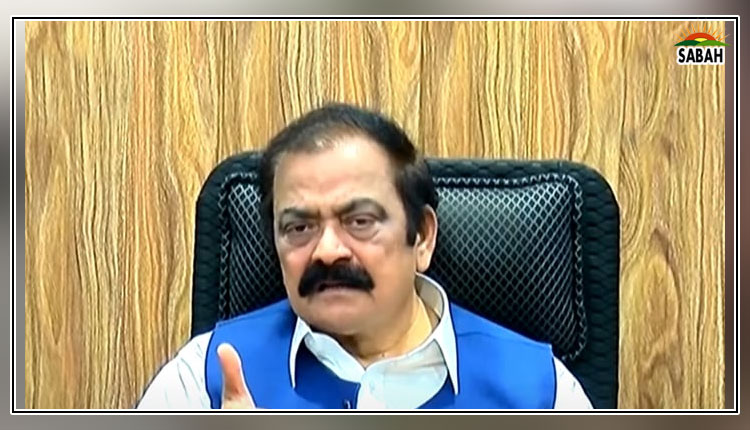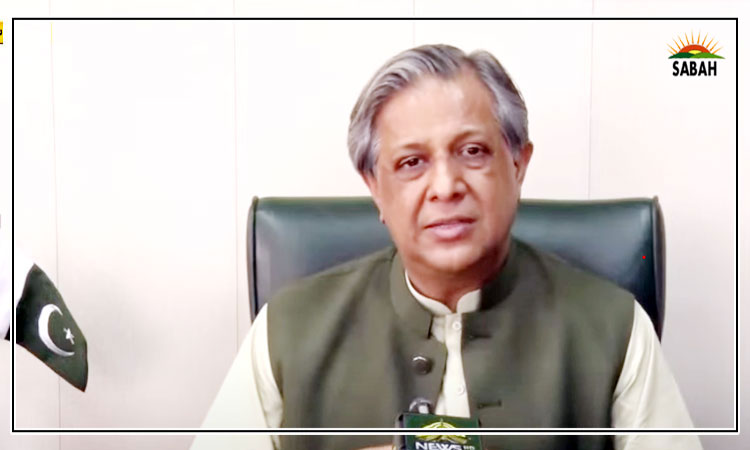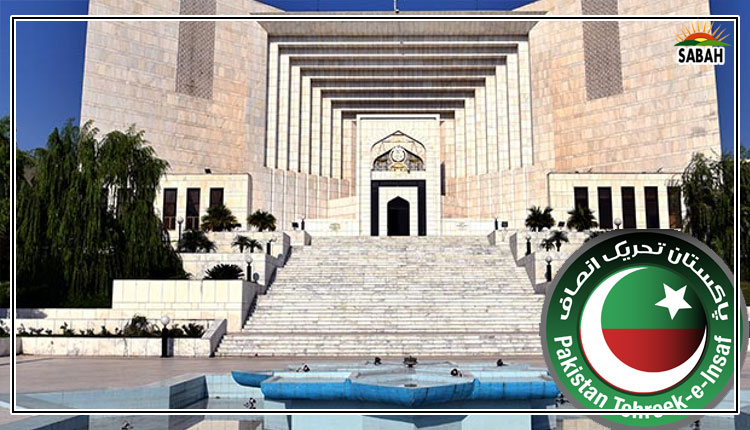Apex Court seeks responses from federation, FIA on Chairman PTI Imran Khan’s bail plea in cipher case
ISLAMABAD, Nov 22 (SABAH): The Supreme Court of Pakistan on Wednesday issued notices to the federation and Federal Investigation Agency (FIA) and sought responses from them on Pakistan Tehreek-e-Insaf (PTI) Chairman and former prime minister Imran Khan’s bail plea in the cipher case.
The cipher case pertains to a diplomatic document that the FIA’s charge sheet alleges was never returned by Imran Khan. The PTI has long held that the document contained a threat from the United States to oust Imran as prime minister.
The former premier and his aide Makhdoom Shah Mahmood Qureshi, who is also behind bars, were indicted in the case on Oct 23. Both have pleaded not guilty and approached the apex court for bail.
Earlier, the Islamabad High Court endorsed Imran’s indictment, disposing of his plea against the same, but had also instructed the special court judge to ensure a “fair trial”. Last week, the court halted trial court proceedings against the PTI chief while hearing his intra-court appeal.
On Tuesday, the court declared illegal the proceedings of the cipher case, meaning that the entire process would have to start afresh. It also said notifications issued for conducting the trial in jail were against the law and spoiled the proceedings, including the indictment of the PTI leaders and the testimonies of four witnesses.
On Wednesday, a three-member SC bench, comprising Justice Sardar Tariq Masood, Justice Yahya Khan Afridi and Mrs Justice Ayesha A. Malik took up Imran Khan’s plea and declared it as admissible.
At the outset of the hearing, PTI Chairman’s counsel Barrister Salman Safdar read out loud the first information report registered against Qureshi and Imran in the case after which Justice Masood inquired how far the matter dated back to. It is from 2022, the lawyer replied.
At that, the judge said the PTI had spent an entire year on the case. He also highlighted that some sections in the FIR mentioned two-year punishment while others entailed lifetime imprisonment and the death penalty.
Justice Masood also chided the FIA investigating officer for appearing in court without notice.
Meanwhile, Justice Afridi noted that the cipher case inquiry had said the role of the co-accused would be determined during the investigation. “What did the investigator say about Muhammad Azam Khan in the final investigation report?” he asked.
In his response, Salman Safdar said the probe did not convey a clear stance. “Azam Khan was abducted, his family had even registered a case … afterwards, his statement came forward,” the lawyer said.
This is how the truth comes forth, Justice Masood remarked here.
During the SC hearing, the PTI Chairman’s counsel also contended that his client was being made a victim of political revenge and recalled how he had presented arguments before the court for hours. However, Justice Masood remarked that this happened because the cases were being run in a political manner.
“The accused is not under 60 years and the case pertains to further inquiry, so let’s come to that,” the judge added.
Here, Justice Ayesha Malik asked about the basic grounds of the case, to which Safdar said the main argument was that the case should not have been registered in the first place. He added that the sections invoked apply to crimes such as espionage.
“The investigation does not mention anywhere how an enemy state benefitted,” he further argued.
The case, Justice Masood highlighted, says the code of the cipher was compromised. “Although the code keeps changing, it can change even after a week,” he said.
For his part, the PTI Chairman’s counsel contended that the sections invoked in the FIR were incorrect as compared to the complaint. “The cipher was declassified as per the law and then presented in the National Security Committee,” he said, adding that the same was also mentioned in the SC verdict on the no-confidence motion against Imran.
However, Justice Masood directed Safdar to stick to arguments pertaining to the current case while Justice Afridi asked if the cipher was a secret document.
It was not a secret document after declassification, the lawyer responded.
“Did the accused show the cipher before it was declassified?” Justice Afridi asked, to which Safdar replied in the negative. The judge also clarified that the court was currently looking at the charges.
At one point during the hearing, Justice Masood asked: “If the cipher is waved in the air and its contents are revealed, then does it not fall under the category of communication?”
Subsequently, the court issued notices to all the respondents in the case and adjourned the hearing for an indefinite period.
Moved through Safdar on behalf of Imran, the petition pleaded that it was an unequivocal and well-established principle of the Supreme Court that bail should never be wielded as a form of punishment.
The grant of bail is a remedy primarily vested in the discretion of courts, a discretion that must be exercised with the utmost care and caution, as it constitutes a fundamental facet of the judicial power, the petition said. Each bail application must be meticulously considered in light of the relevant facts and circumstances as they pertain to liberties of citizens, he added.
The liberty of a citizen has been elevated to a high pedestal by provisions of Articles 7 and 9 of the Constitution which ensure that no citizen should be deprived of his life or liberty, save in accordance with law, nor any accused person should be detained without lawful authority of the competent court.
Unfortunately, a disheartening trend has emerged where the state machinery, in a questionable display of power and authority, has made strenuous attempts to concoct and fabricate false cases, the petition alleged, adding that the registration of the cipher case was another facet of this malevolent campaign, with the sole objective of settling scores with the petitioner.
The petition alleged that the initiation of the cipher case, orchestrated at the behest of the interior secretary and executed by the Federal Investigating Agency (FIA), represents yet another endeavour to subject the petitioner to political victimisation.
This orchestrated effort to target the petitioner is part of an ongoing pattern of the abuse of the Criminal Justice System, all under the directive of political adversaries.












